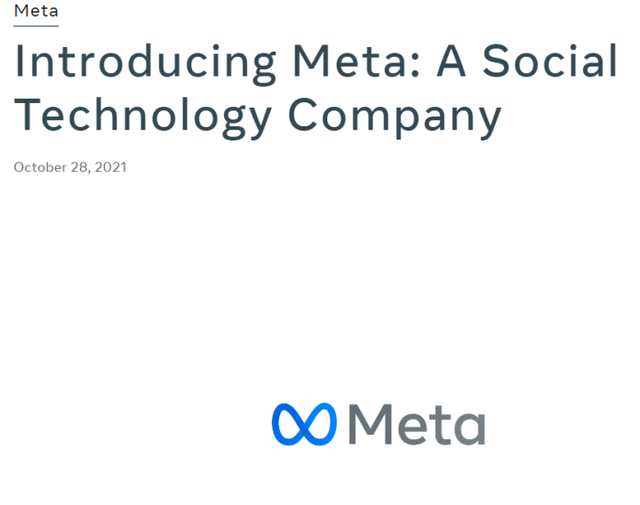Meta's Growing Need for Trust and Commitment
![]() 09/05 2025
09/05 2025
![]() 673
673
Source: Byte
'One long-serving employee has diligently worked for 5 years, earning an annual salary of $500,000. Meanwhile, a newly recruited employee, who recently joined from OpenAI, commands an annual salary of $5 million.' This straightforward complaint on social media sets the stage for Zuckerberg's AI battle.
In 2025, Silicon Valley witnessed this aggressive talent raid initiated by Meta.
The approach was straightforward and unrefined: simply throwing money around.
Peng Ruming, a key AI executive at Apple, was offered a compensation package exceeding $200 million, a sum that nearly surpasses the earnings of all Apple executives except for Cook.
Subsequently, ChatGPT co-founder Zhao Shengjia, former Scale AI founder Wang Tao, and ex-GitHub CEO Nat Friedman, all prominent figures in the AI realm, were lured into Meta's fold through lucrative contracts.
What was the outcome?
Core talents staged a 'quick exit' less than a month after joining, returning to OpenAI. Zuckerberg's 'talent acquisition strategy' quickly unraveled, turning into an industry joke and serving as a 'bargaining chip' for rival employees to negotiate higher salaries.
This war, fueled by 'financial clout' and the ensuing chaos, appears to be heading towards a dismal end.
01
Obsession with the Metaverse
To grasp the current madness, we must rewind to 2021.
That year, Zuckerberg stood in a virtual digital living room, adorned with a meticulously designed digital fireplace and floor-to-ceiling windows. In a tone that almost evoked the 'uncanny valley effect,' he announced a decision that would cost hundreds of billions of dollars: Facebook would be rebranded as 'Meta.'

This move seemed more like a grand escape. At the time, Facebook was embroiled in controversy, with whistleblower Frances Haugen's revelations sparking a global reputation crisis. The company faced accusations of manipulating elections and promoting violence. The New York Times disclosed a plan called 'Project Amplify' (codename: Amplify) – the core idea being to flood users' timelines with more positive company news.
The grand narrative of the metaverse served as a splendid 'distraction' from this PR disaster.
Zuckerberg painted a grand vision of a future where physical TVs would become obsolete, and screens would transform into holograms. However, in reality, to achieve this vision, his Reality Labs division burned through nearly $30 billion in just a few years. By 2022, his flagship product, Horizon Worlds, had fewer than 200,000 monthly active users. More ironically, according to anonymous Meta engineers, this highly anticipated metaverse tool was actively avoided even by the company's own employees. During the 2022 Spring Festival, with metaverse business losses exceeding $10 billion, Meta's stock price plummeted, and its market value continued to shrink.
He seemed to be running alone against the wind.
While he went all-in on the metaverse, his Silicon Valley peers appeared particularly 'out of sync.' Musk was busy launching rockets into space, while Google and Microsoft were quietly amassing fortunes in AI. Zuckerberg's obsession distanced him from the realists in the mainstream tech circle.
The public's response was ruthless ridicule and disgust. By the end of 2021, he was named 'Villain of the Year' by The New Republic magazine. A Forbes survey revealed that in the United States, he was even more disliked than Donald Trump. On Independence Day, he posted a video of himself surfing with the national flag, intending to showcase patriotism, but it quickly became fodder for various memes by netizens. He shared a loving photo of his wife cutting his hair, which was also turned into an execution scene.
This disgust even extended to areas unrelated to his business. Roger Waters, a member of the renowned band Pink Floyd, directly cursed when rejecting a multi-million-dollar song licensing offer from Instagram. Even the San Francisco General Hospital, to which Zuckerberg had donated $75 million in 2015, attempted to distance itself from him in recent years.
The metaverse's disastrous failure made AI not just a new option for Zuckerberg but the only gamble to salvage his personal reputation and the company's future. His motivation was no longer about leading but stemmed from the fear of being completely abandoned by the times.
A name increasingly drawing outside attention – Meta Superintelligence Lab, or Meta's 'Superintelligence Lab.'
This lab is considered the AI strategic hub where Meta is 'going all in.' Its goal is no longer to develop ordinary chatbots but to 'create artificial general intelligence systems (AGI) smarter than humans.' In other words, Zuckerberg is betting on the future of AI, and top AI talents like Peng Ruming are his 'ace cards.'
02
Three-Front War
'Mercenaries cannot defeat missionaries.'

Conceptual image generated by AI | Produced by Byte
Sam Altman's voice on the podcast was calm, striking at the core of Meta's talent war. This was not just about poaching – it was a clash of two values. Altman later confirmed that Meta had indeed offered his team exorbitant salaries, but he added casually, 'At least so far, I'm glad none of our best talents have accepted his offer.'
Meta's KPI-driven culture clashes with the long-term vision and sense of mission required for top AI research.
'I want to choose a different kind of risk,' wrote Rishabh Agarwal, a former Google Brain researcher, on social media. He left Meta just a few months after joining.
Zuckerberg tried to measure and buy loyalty with transactions he understood best, but loyalty was something he understood least.
Meta seemed to forget a fundamental truth: talent is not a commodity whose loyalty can be bought with a high price. The top talent market in Silicon Valley is not a simple money game. Top talents seek not just money but a platform, culture, growth opportunities, and the sense of accomplishment that comes from 'changing the world.'
In 2023, when Sam Altman was ousted and then rehired by the board, employees collectively wrote a letter saying, 'Without Altman, we leave.' Such a display of loyalty is probably hard to comprehend with money alone.
But the AI war is not just fought on job boards; it has also reignited Silicon Valley's oldest and most public feud. From the notorious 2023 'cage fight' farce, the performative hostility between Zuckerberg and Musk has been a hot topic in the tech circle. Absurd, childish, even Musk's own mother stepped in to call off her 53-year-old son's behavior.
Yet the logic of the business world is far more complex than noble mission statements.
A court filing accidentally revealed a more bizarre secret: while Musk was shouting about 'saving humanity' and suing OpenAI, in February 2025, he was privately attempting to launch a $97.4 billion acquisition of OpenAI and even tried to enlist his 'arch-rival' Zuckerberg in the deal.
The roles reversed.
It turned out that the 'cage fight' was for public show, while 'conspiracy' was the real move on the chessboard. In the face of the shared fear of 'letting OpenAI dominate,' personal grudges and public hostility could be temporarily set aside.
While external battles raged, a quieter yet more destructive civil war tore through Meta's interior. It was a route struggle between old and new forces, with the company's AI 'pope' and Turing Award winner Yann LeCun long accused of 'technological tyranny.' He firmly believed that autoregressive large language models were 'garbage' and persisted in pursuing costly 'world models.'
This pursuit of 'technological purity' is widely seen as a key reason Meta missed the LLM opportunity.
'A top scientist with a $100 billion budget managed to turn Meta's AI business into a mess!' Silicon Valley venture capital circles mocked.
As Zuckerberg was determined to catch up with large language models, LeCun inevitably became the 'conservative' in his eyes. Thus, in the memo for the newly established Superintelligence Lab (MSL), Zuckerberg extensively mentioned the new leaders Wang Tao and Nat Friedman but made no mention of LeCun.
This former AI leader was being rapidly marginalized.
Recent rumors suggest that LeCun now reports to Wang Tao. During an internal meeting, LeCun opposed Wang Tao's aggressive R&D plan, emphasizing the importance of long-term research, while Wang Tao bluntly replied, 'We're developing superintelligence, not debating philosophy.'
In this surreal scenario, before Zuckerberg could fully resolve the company's technological route and conservative factions, he hastily poached a series of AI luminaries, accelerating Meta's internal division.
The money was sufficient, but the organization was in chaos.
Old employees felt psychologically imbalanced, while new employees sensed hostility. The team atmosphere shifted from 'Let's change the world together' to 'Why are you worth more than us.'
03
The Endgame
Finally, recruitment was paused.
Meta confirmed this to the media. A spokesperson said the move aimed to 'establish a solid structure for our new superintelligence business.'
A polished corporate PR statement.
But behind this rhetoric lies an undeniable chaos. And this chaos did not begin today – its roots are deeply embedded in Zuckerberg's personality and power structure.
His idol is Augustus, the first emperor of ancient Rome. His admiration for this ruler is reflected not just in naming his second daughter 'August' but also in how he governs his social empire. Through a clever dual-class share structure, he firmly controls over 55% of the company's voting rights.
The board is virtually powerless for him.
This style is reflected in how he handles competition. When WhatsApp and Instagram first emerged, his tactic was to offer an irresistible acquisition price, then gradually sideline the founders once they joined. The founders of WhatsApp even angrily participated in the '#DeleteFacebook' online campaign.
This style is also reflected in how he treats employees. Meta's violent layoffs were dubbed 'Bloody Wednesday' – 11,000 employees paid for the company's mistakes, while his metaverse team, deemed 'strategically necessary,' remained unscathed.
While Zuckerberg built the world's largest data empire, exposed in the Cambridge Analytica scandal for leaking 87 million user data, he is extremely protective of his own privacy, sealing his computer camera with tape and spending $23.4 million to build a 'doomsday bunker' equipped with a bomb-proof conference room.
It's somewhat ironic that the man who created a social empire understands social dynamics the least.
His vision of 'personal superintelligence' takes on a deeper meaning when reflected through his personality. This is not just a commercial layout but the ultimate extension of his personal will – a superpower he can control and 'bestow' upon the world, an attempt to rebuild order and reshape his self-image.
After months of hubbub, frenzy, and infighting, the billion-dollar war seems to have been muted. The once-boiling 'recruitment party' WhatsApp group chat has fallen silent.
Everything was acquired – the top talents, the most powerful computing power, the grandest lab.
Those figures who left after just a month.
Internal complaints, like background noise, never ceased, along with Altman's mockery about 'loyalty.'
At this moment, the 'tyrant' ruling the digital empire might be pondering a question money cannot answer: after injecting infinite computing power into this superintelligence machine, where can he find a soul capable of retaining people's hearts?
Some images are sourced from the internet. Please inform us for removal if there is any infringement.







